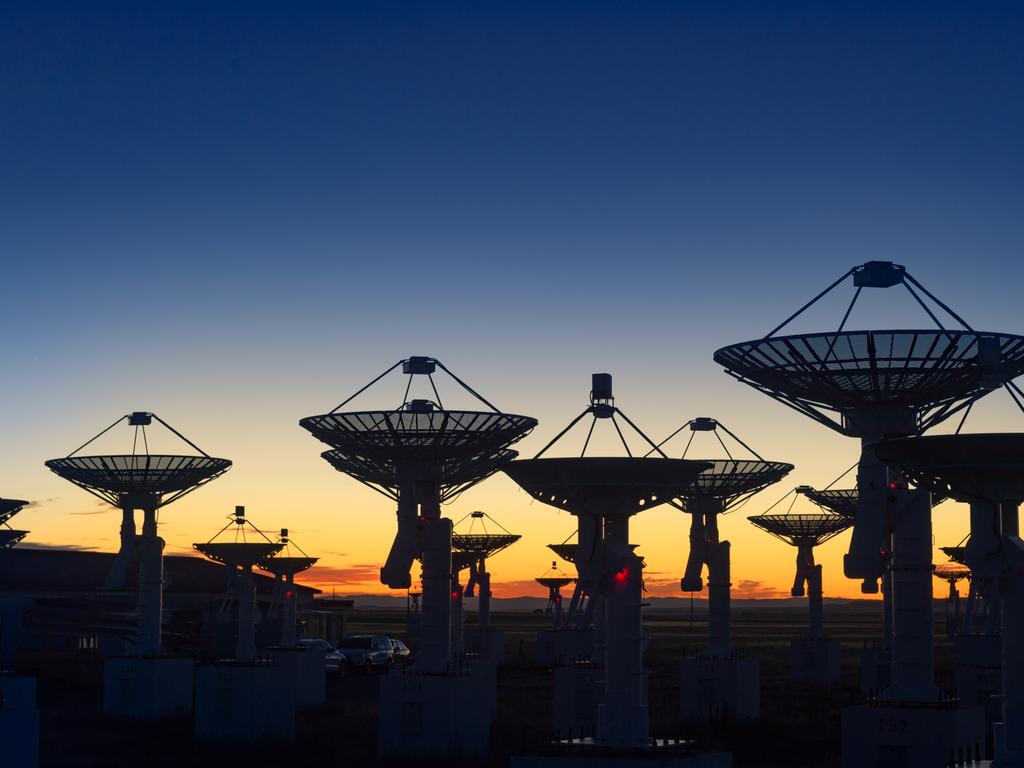Our giants of science sound alarm on research funding
Trailblazing Australian scientists newly elected to the prestigious Royal Society have vented their fears over shortfalls in research funding.

Trailblazing Australian scientists newly elected to the prestigious Royal Society have vented their fears over shortfalls in research funding.
Five Australians are among 94 eminent scientists elected to the world’s oldest scientific academy, the Royal Society in the UK – joining the likes of physicists Isaac Newton and Albert Einstein, and naturalists Charles Darwin and Joseph Banks.
Queensland Brain Institute neurobiologist Barry Dickson, a professor at the University of Queensland, was elected for his groundbreaking studies of the sex lives of fruit flies, which helped uncover how the brain processes information and makes decisions.
Professor Dickson’s lab was the first to manipulate a gene that can cause female fruit flies to behave like males, and vice versa.
His research team has mapped the 130,000 neurons and 30 million synapses in the brain of a fruit fly, in cutting-edge research that might ultimately lead to therapies for human mental health disorders such as schizophrenia.
Professor Dickson said the Australian Research Council favours academics who are prolific in writing research papers.
“It’s how many papers you’ve published, not what was the impact of those papers,’’ he said.
“That favours people who strive for quantity, not necessarily quantity. We shouldn’t be funding mediocre research.’’
Professor Dickson said his $100,000 ARC funding grant would expire at the end of the year, and one of his research assistants was planning to leave Australia in search of work in China.
“Overseas, when I applied for grant money I had a 100 per cent success rate, every round,’’ he said.
“In Australia, my batting rate so far is 20 per cent.
“The comments I get back are, ‘this is great science, and a great scientist, but we don’t see the benefit’. You know, every therapy we have today, every technology that we value, all started with somebody noticing something curious about the world and saying, ‘I wonder how that works?’, and then trying to figure it out.
“If you stopped doing that, society stops making progress.’’
University of Melbourne pro vice-chancellor in charge of research infrastructure Ivan Marusic was elected a Royal Society fellow for his research into fluid mechanics.
He investigates the science of air and gas flow and turbulence, to improve air travel, make wind turbines more reliable, and maintain river and ocean health.
Professor Marusic said Australia must spend more money on “blue-sky research’’, and warned that caps on fee-paying international student numbers will reduce universities’ revenue.
“It’s not very attractive for a politician to make investments now that may only reap rewards 10 or 20 years down the road,’’ he said. “If Covid has taught us anything it is that sovereign capability is essential.
“We can’t rely on others and just import technology and knowledge because that’s ultimately going to be a detriment.
“I have great concerns for my younger colleagues and postdocs (postdoctoral graduates) who are coming through who are incredibly smart and have so much to offer, but there are very limited pathways for them.’’

Computer scientist and mathematician Emeritus Professor Richard Hartley, of the Australian National University, has been elected to the Royal Society for his pioneering contribution in computer vision, and building the technical foundation of 3D models.
Professor Hartley’s research has been used build 3D models of archaeological sites, and to create and detect deepfake images and videos.
He warned on Thursday that Australia must increase spending on scientific research to keep up in the “arms race’’ of deepfakes, cyber hacking and drone technology.
“It’s very stark, the difference of (how much funding) you can get for an ambitious proposal in Australia, compared with what’s possible in America,’’ he said.
“I went along to the AI Institute in Shanghai, where they have a 50-storey building completely full of people doing AI research – an enormous investment.”

University of Melbourne researcher David Komander, of the Walter and Eliza Hall Institute of Medical Research, has been elected to the Royal Society for his pioneering work in cell renewal and destruction.
Professor Komander’s research led to drug discoveries for Parkinson’s disease, inflammation and cancer. He has led work on Ubiquitin, known as the “kiss of death’’ protein, which tells cells which proteins to break down or recycle – vital to cell health.

Monash University Professor Douglas Macfarlane, a world expert in green ammonia, electrochemistry and ionic liquids, was elected to the Royal Society for his groundbreaking contributions to renewable energy technologies.






To join the conversation, please log in. Don't have an account? Register
Join the conversation, you are commenting as Logout